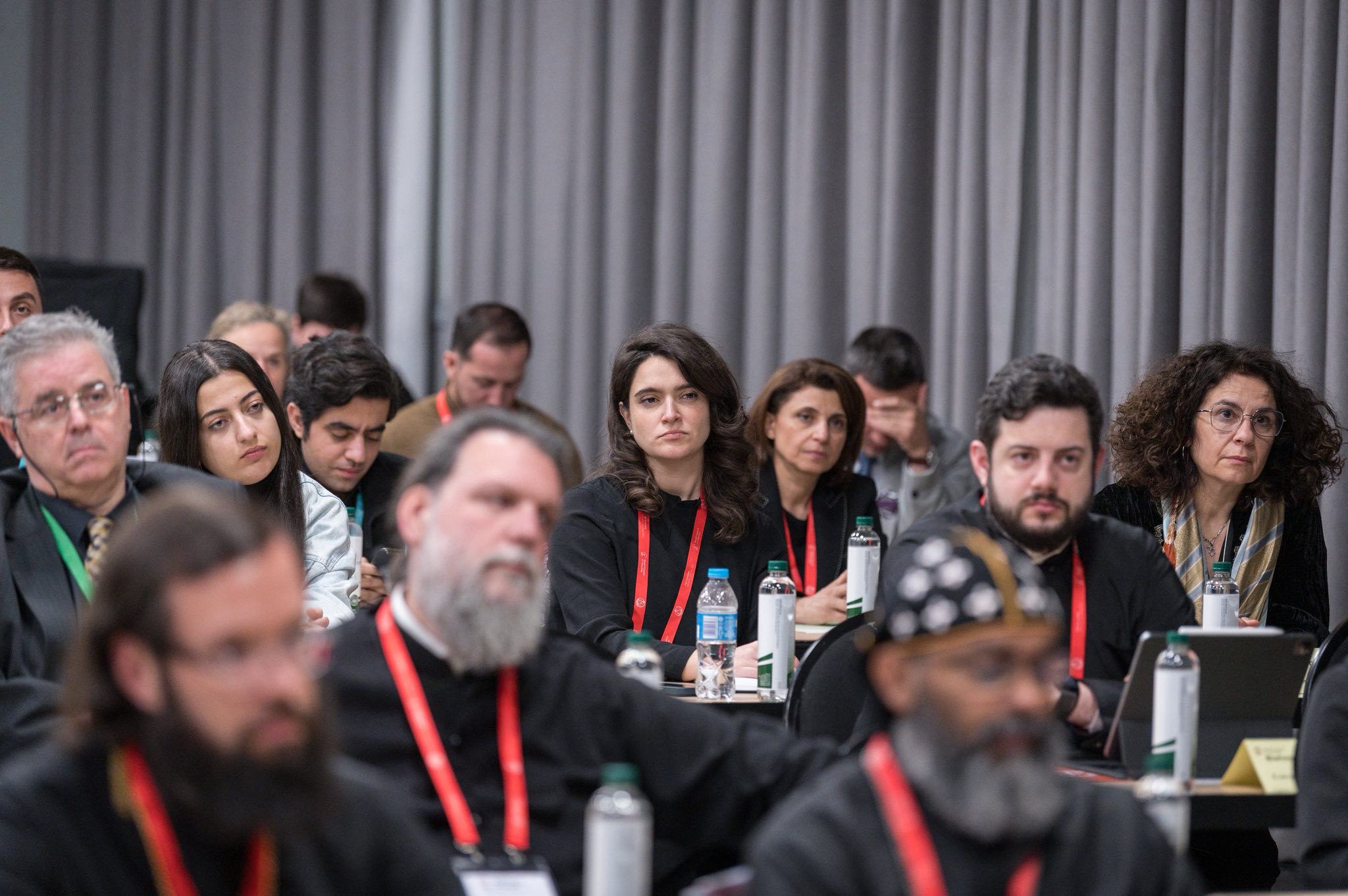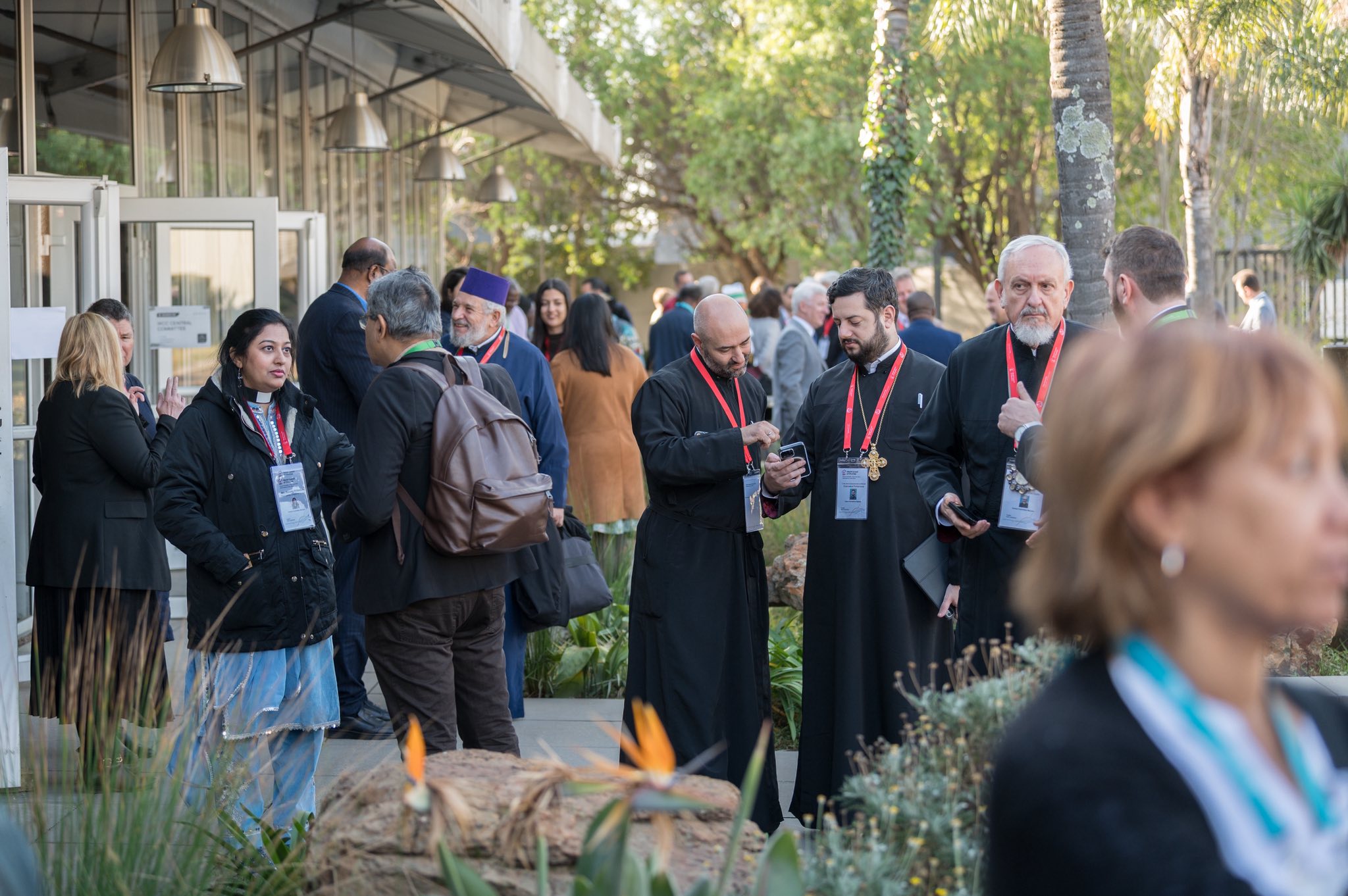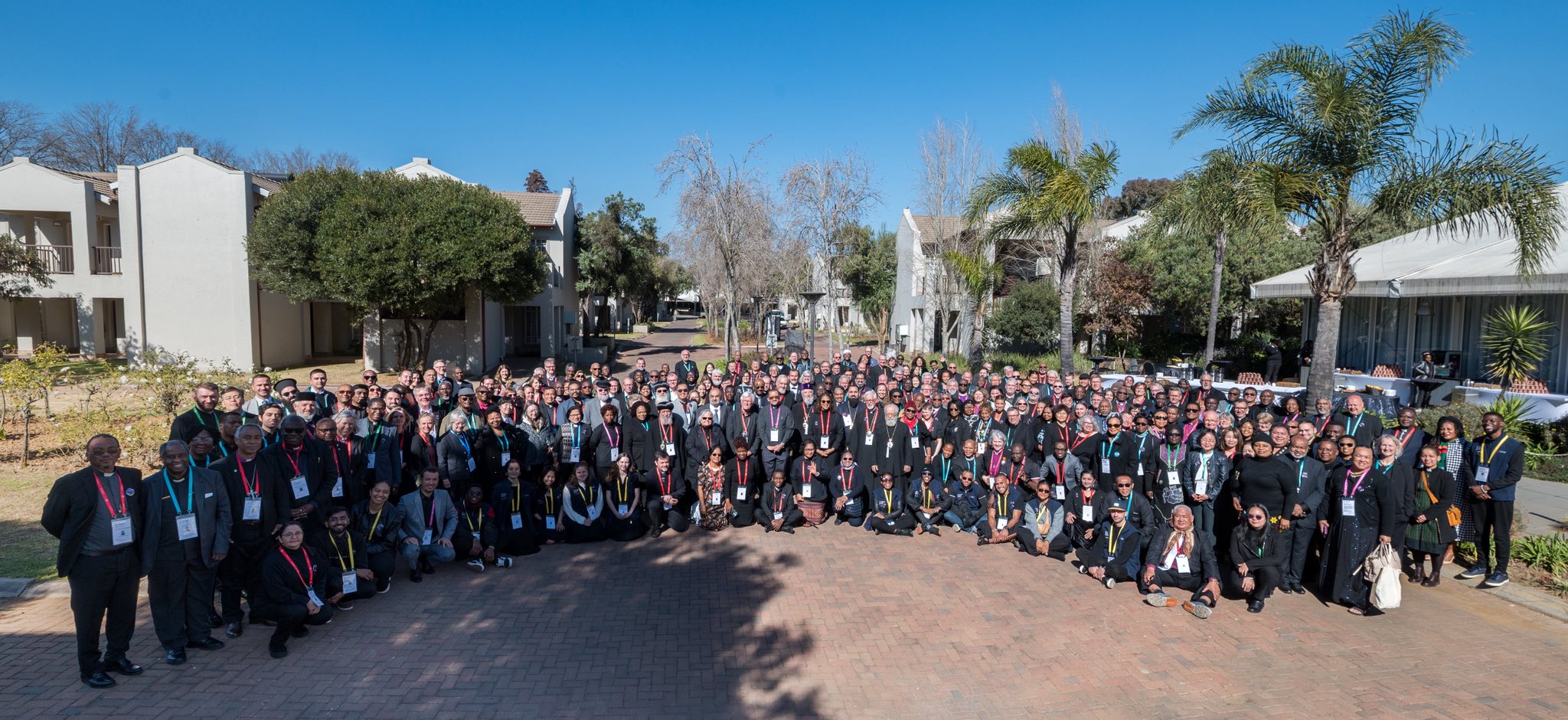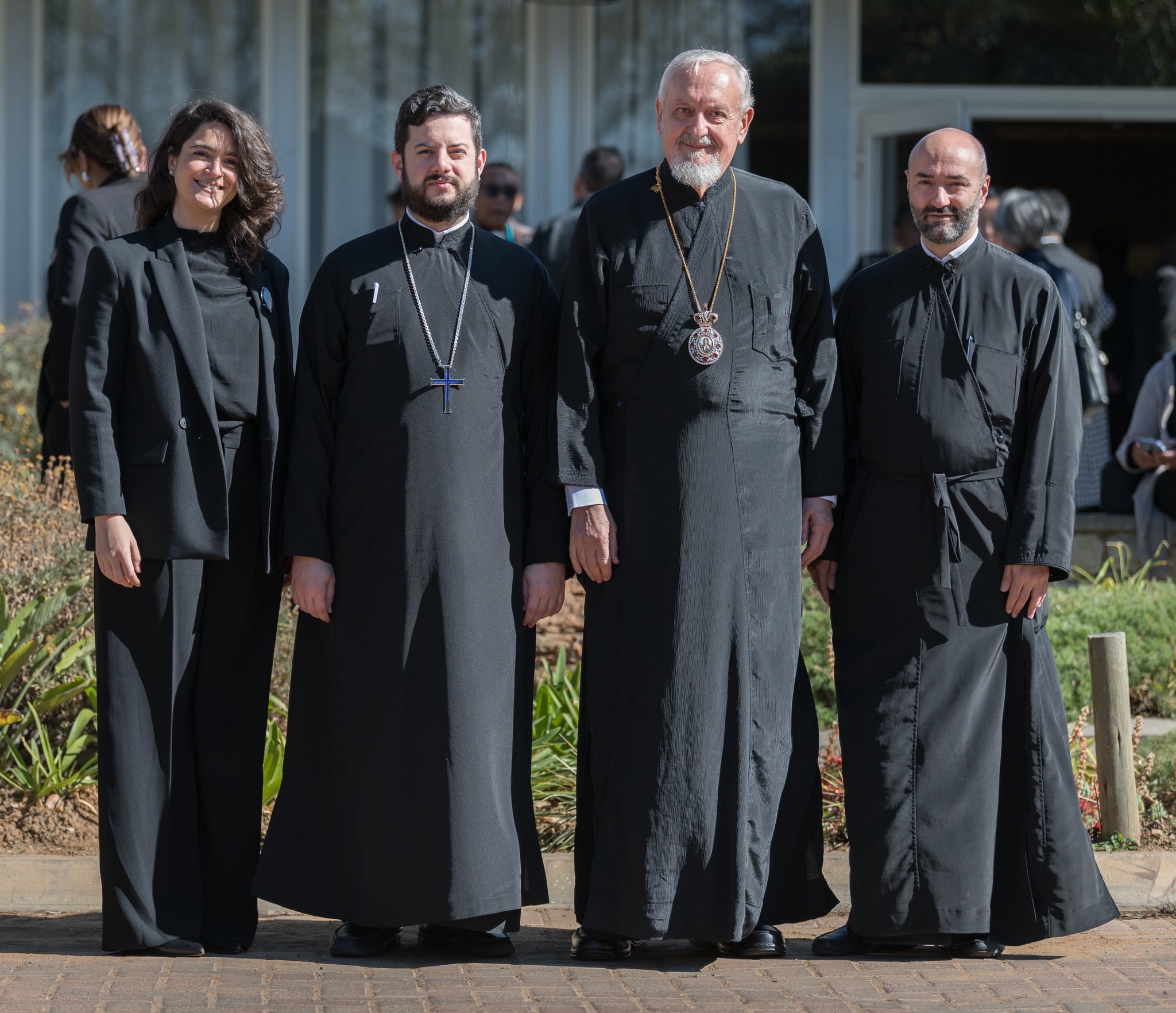Αντιπροσωπεία του Οικουμενικού Πατριαρχείου, υπό τον Σεβ. Μητροπολίτη Γέροντα Χαλκηδόνος κ. Εμμανουήλ, συμμετέχει στην συνεδρίαση της Κεντρικής Επιτροπής του Παγκοσμίου Συμβουλίου Εκκλησιών για το 2025 που πραγματοποιείται στο Γιοχάνεσμπουργκ (Νότια Αφρική) από 18 έως 24 Ιουνίου 2025, με θέμα “Pilgrimage of Justice, Reconciliation, and Unity”.
Στην αντιπροσωπεία, υπό τον Γέροντα Χαλκηδόνος, συμμετέχουν: ο Πανοσιολ. Μέγας Αρχιμανδρίτης κ. Ιάκωβος, ο π. Νικόλαος Καζαριάν και η Υβόννη Βίγκα.
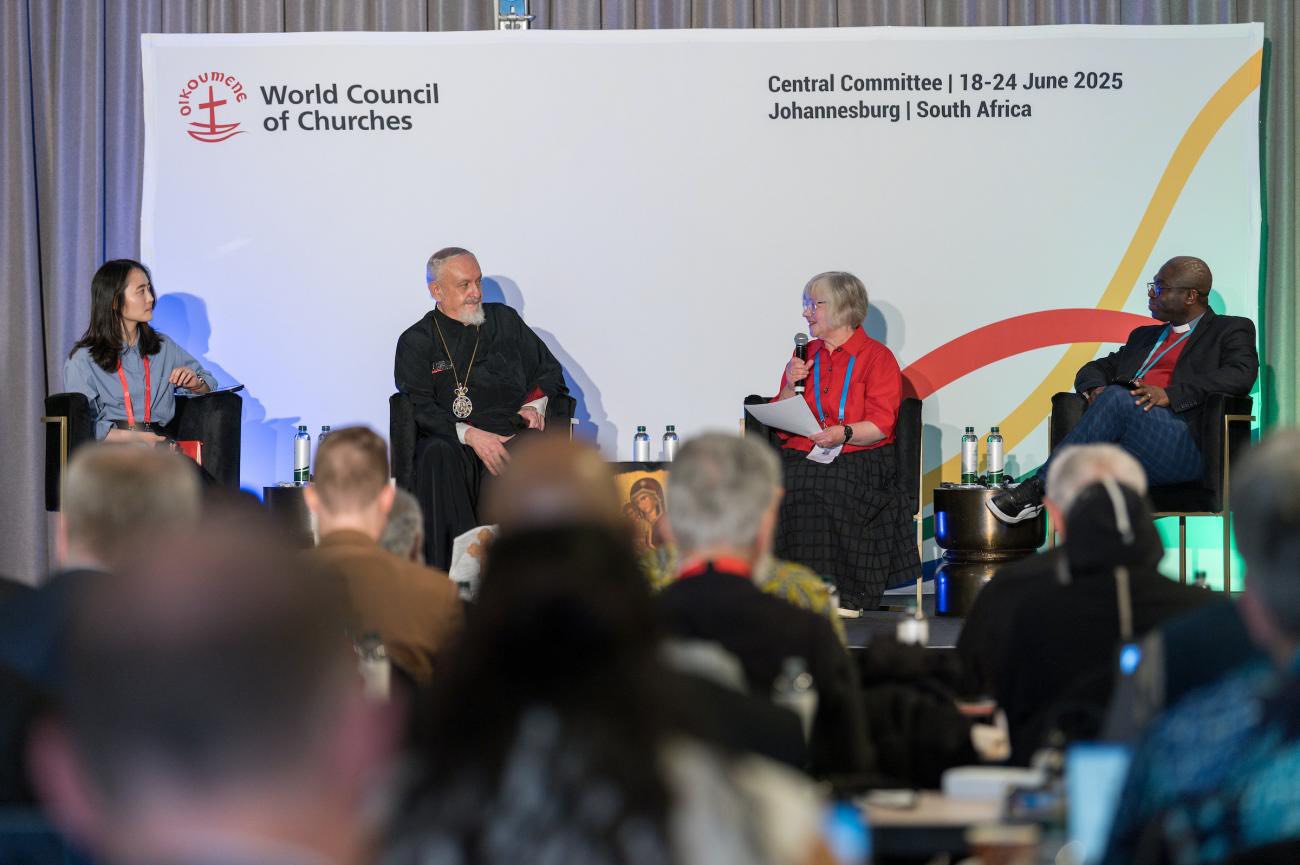
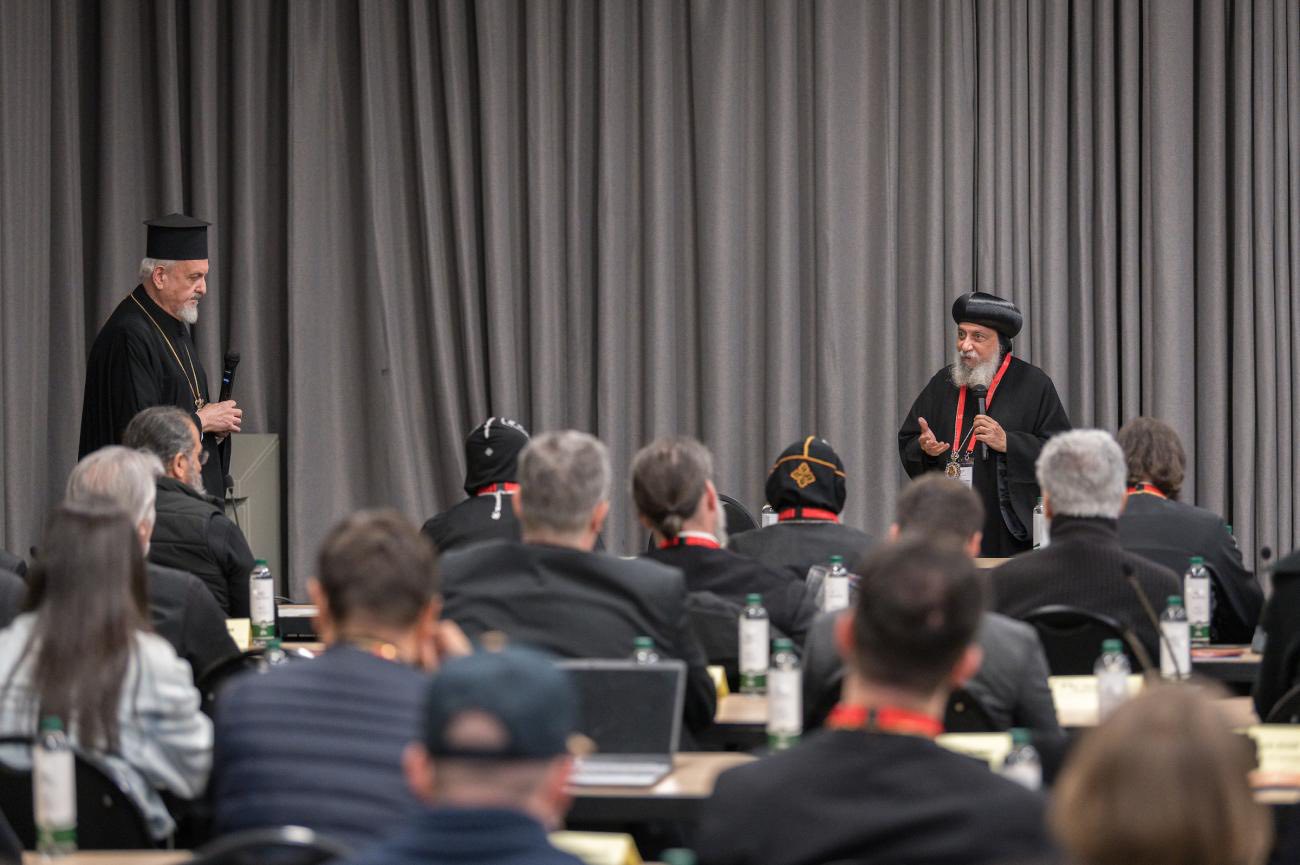
Plenary Response – WCC Central Committee on Climate Justice
“Ecological Metanoia in the Face of the Climate Emergency”
The Grand Archimandrite Iakovos, Ecumenical Patriarchate
Johannesburg, Saturday, 21 June 2025
Beloved sisters and brothers in Christ,
With gratitude for this opportunity, I wish to share a few words inspired by the voice of the Ecumenical Patriarchate of Constantinople and, in particular, the prophetic witness of His All-Holiness Patriarch Bartholomew, whom many call the Green Patriarch.
While this is not one of my areas of expertise, it is one of the pillars of the Ecumenical Patriarchate’s public witness. I will do my best to reflect on something from our experience speaking about ecological metanoia.
His All-Holiness has declared with theological clarity and moral conviction that harming creation is a sin. This is not a metaphor. It is a recognition that the ecological crisis is fundamentally a spiritual crisis. And as with all sin, the appropriate response is not superficial adjustment, but metanoia—radical transformation of heart, mind, and life.
What do we mean by ecological metanoia?
First, it means awakening from illusion. Patriarch Bartholomew warns that “the modern world suffers from a delusion: that the planet can endlessly absorb abuse and regenerate itself.” But climate change—more accurately called climate disruption or climate emergency—is not a distant possibility. It is already here. The rising frequency of wildfires, floods, biodiversity loss, food insecurity, and the widening gap of environmental inequality signal the unravelling of the delicate balance of creation.
Ecological metanoia, then, is not optional. It is the conversion that the world now requires.
It begins with a change of vision.
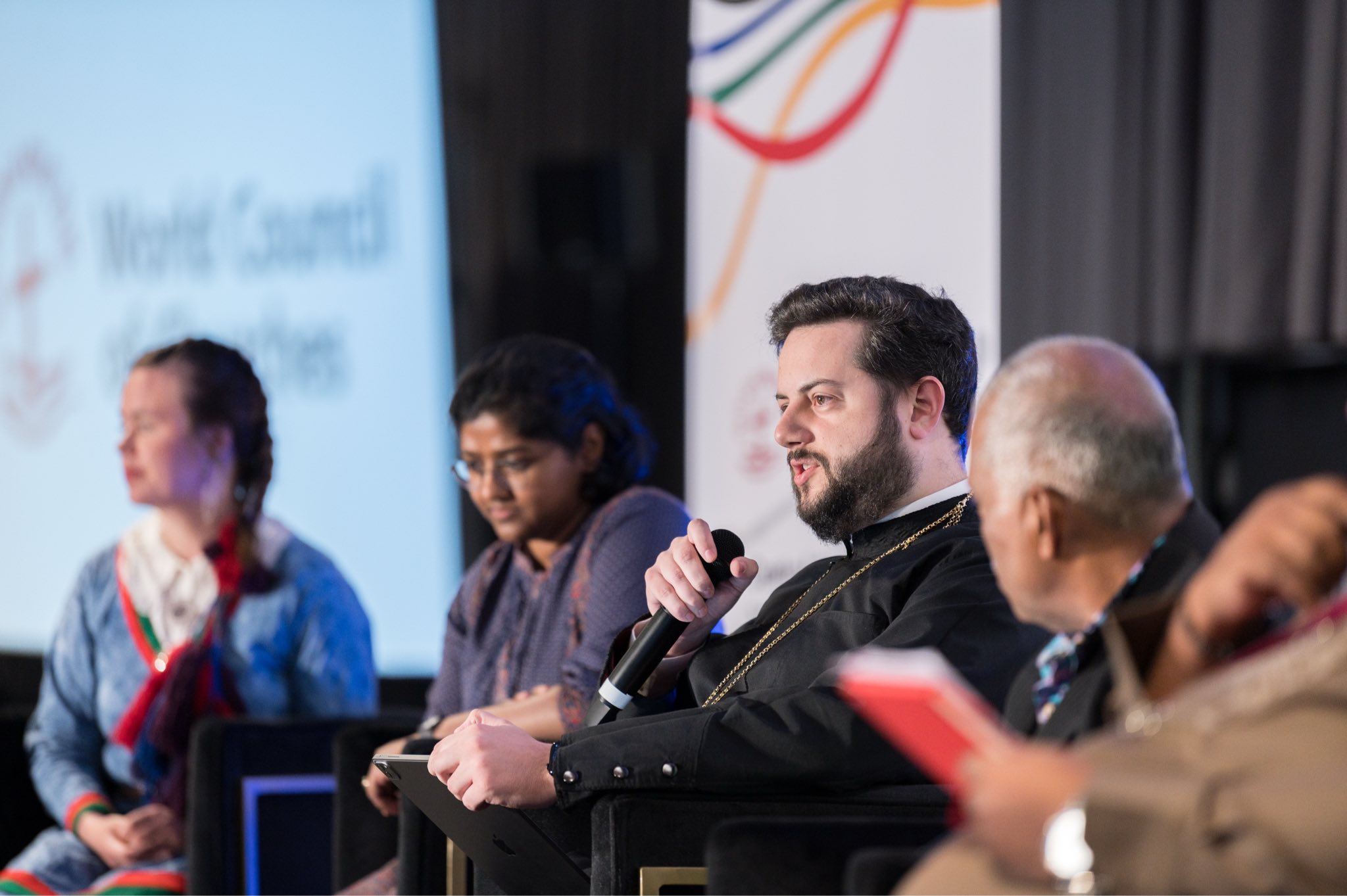
The Orthodox Church teaches that creation is not a possession, but a gift. In the Divine Liturgy, we offer to God “Thine own of Thine own”—a reminder that the world belongs to God, not to us, and that our vocation is to serve not as owners, but as priests and stewards of creation. In the Eucharist, we do not offer wheat and grapes, but bread and wine—creation transformed through reverence, dedication, and love.
In the same way, our ecological vocation is not merely to preserve creation, but to transfigure it through justice, through restraint, and through joy.
It continues with a change of life.
In Orthodox thought, asceticism is not about denial but about freedom—the freedom to say “enough.” Our tradition teaches that true abundance comes through simplicity, restraint, and communion. It urges us to fast not only from food, but from greed, to discern not merely between good and evil, but between what we want and what we need.
His All-Holiness has described this as the necessary antidote to “the culture of waste and the idolatry of growth.”
It culminates in solidarity and responsibility.
Patriarch Bartholomew reminds us that ecological and social issues are inseparable. “The effort to dominate nature,” he writes, “has become the destruction of nature.” And this destruction disproportionately impacts the poor, the displaced, and the voiceless.
Ecological metanoia is therefore also a cry for justice—climate justice, food justice, intergenerational justice.
The Holy and Great Council of the Orthodox Church, held in Crete in 2016, stated in its Encyclical:
“The roots of the ecological crisis are spiritual and ethical, inhering in the heart of each person. The Church offers to the world her spiritual treasures—prayer, repentance, love, hope, the sense of justice and the truth of the Gospel—as the basis for raising ecological awareness and caring for creation.”
The Church, in her very being, is applied ecology. Her liturgical rhythm, her ascetic wisdom, and the witness of her saints all offer not only critique but also an alternative: a culture of gratitude over greed, communion over consumption, reverence over recklessness.
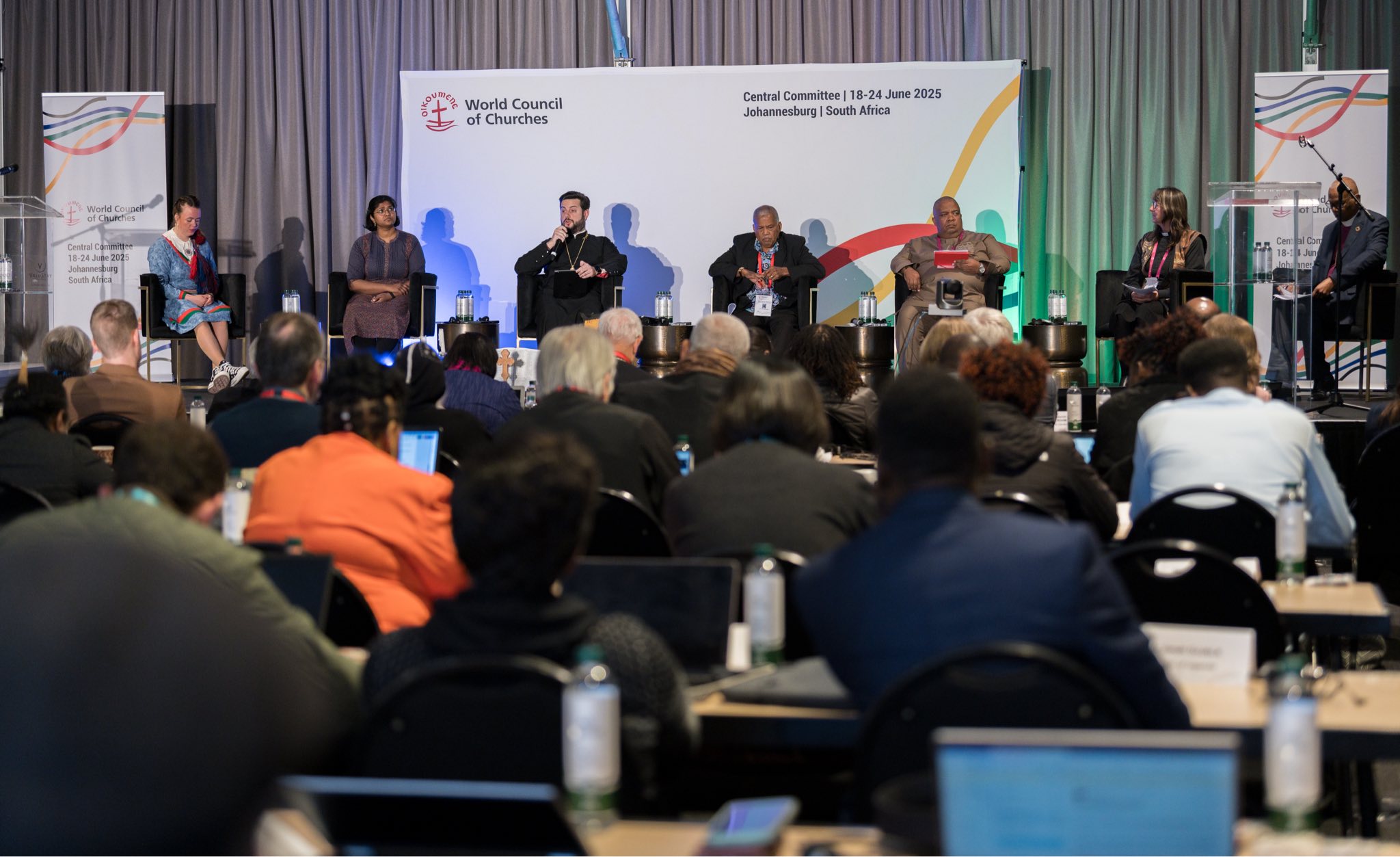
In Chios, Greece, last year, His All-Holiness observed:
“The destruction of the environment begins in the human mind—and it is from there that healing must begin.”
This is the spiritual heart of ecological metanoia. It is not only about doing less harm. It is about learning again to see the Earth as sacred. To see our neighbour as kin. And to see our faith not as an inward refuge, but as an outward calling—to transfigure the world in the image of the kingdom of God.
Beloved friends,
The Orthodox Church affirms that there is no genuine progress without justice, and no justice without a fundamental change of heart. If the twentieth century was marked by dominion over nature, let the twenty-first be marked by reconciliation—with creation, with one another, and with God.
This is the path of ecological metanoia. May we walk it together, with courage and hope.
Thank you.
Photos: Albin Hillert/WCC
